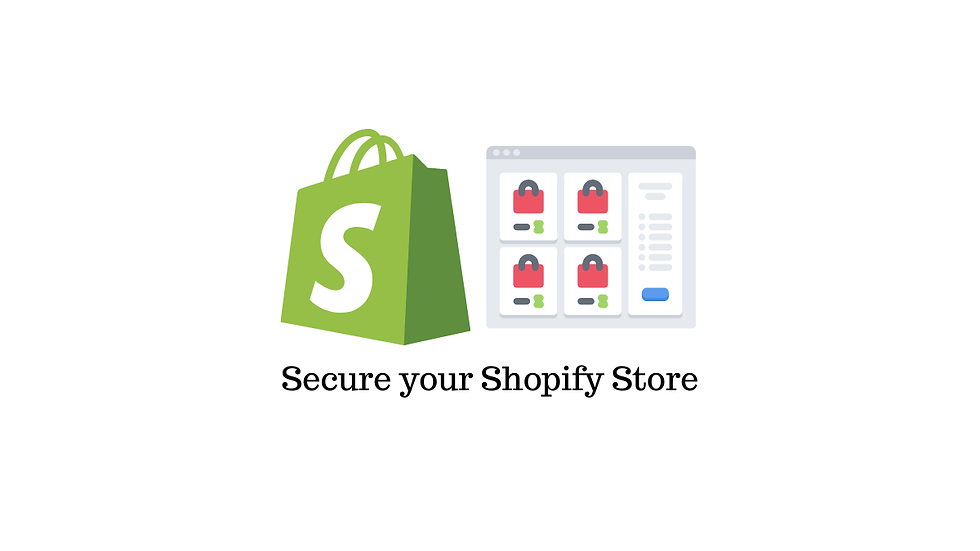Secure Shopify: How to Protect Your Store from Hacking?
- Barwenock Company

- Oct 25, 2023
- 3 min read
Why is the security of your Shopify online store so vital?
The security of your Shopify store is an essential aspect of running a business. Your customers entrust you with their personal and financial information. If your store gets hacked, it can harm not only you but also your customers. Such a breach can severely damage the store's reputation, leading to customers avoiding your store in the future and not recommending you to their acquaintances.
Potential Security Threats for Shopify Stores?
Some of the most common include:
- BOLA Violation (Broken Object Level Authorization): This often occurs with weak control and excessive permissiveness for APIs. It happens due to unsafe coding practices, like not verifying user input or checking permissions before granting user access.
- Compromised Authentication: This issue frequently arises when authentication protocols are inadequately protected or not correctly implemented.
- Broken Property-Level Authorization: If an API does not adequately check a user's permissions before giving access to an object's properties, an attacker can modify these properties and access data.
- DoS Attacks: An attacker exploits an API vulnerability to consume excessive system resources, such as memory, CPU, or bandwidth.
- IDOR (Insecure Direct Object References): This results from insecure direct linking to an object, leading to user authorization violations at the functional level.
There are other security threats to your site, but we'll focus on these for now.

A Strong Password: The First Step to Security
Creating a sufficiently complex password is already half the battle in securing your store. It should have a minimum of 12 characters, a mix of uppercase and lowercase letters, numbers, and special characters. Avoid using personal information like names, birthdates, etc., as passwords.
Consider using a password manager. This tool aids in not having to remember countless combinations of characters for different pages. Also, regularly update your passwords; it aids in keeping you secure.
Two-factor authentication (2FA) is also crucial. It lowers the risk of potential hacks to your store. This can include an SMS code, Google Authenticator, or a USB key.
Grant access only to trusted employees. Delegate specific access levels based on each employee's role. For instance, a developer doesn't necessarily need access to the accounting department. Periodically review the list of employees with access to the panel and their permission levels. This becomes particularly important when there are staff changes or shifts in responsibilities. It's also crucial to train every employee on how to evade potential security threats and data breaches.
Always avoid downloading apps from unofficial sources and consistently update plugins. Often, updates address software vulnerabilities.
Implementing an SSL certificate is of paramount importance. This protocol encrypts the data connection between the server and the client's browser. Ensure that every URL of your store starts with the 'https' prefix.
Backup is vital. Data loss can lead to severe repercussions, from the loss of a client base to the loss of order history and store settings. For Shopify stores, specific backup services exist:
- Rewind Backups: One of the most popular backup apps for Shopify.
- Backupify: Another reliable tool offering automatic backups and straightforward data restoration.
With each passing day and the emergence of new technologies, security threats are on the rise. It's imperative to adapt and conduct regular security audits. For your Shopify store, some services can assist:
- Shopify's built-in scanner: Shopify offers integrated security tools that automatically scan and notify about potential threats.
- Moz Pro: Besides SEO features, Moz Pro provides security functions to inspect your site's integrations and potential vulnerabilities.
In conclusion, security is a pivotal component of e-commerce and requires dedicated time and resources to ensure safety. Our team at Barwenock offers a Shopify Health Check option and is eager to assist your business.


Comments